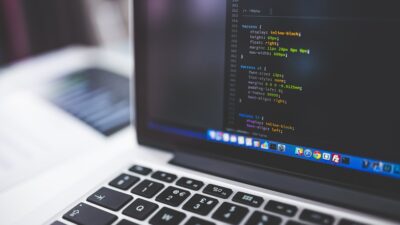In an age where technological advancements happen at dizzying speeds, quantum computing stands out as one of the most transformative and elusive fields. For many, the concept of quantum computing evokes images of complex equations and science fiction narratives, but it’s time to demystify this technology and understand its significance, operations, and future implications.
What Is Quantum Computing?
Traditional computers operate on bits, which can be either 0 or 1. Quantum computers, however, utilize quantum bits or qubits. Unlike classical bits, qubits can exist in a state of superposition, meaning they can be both 0 and 1 simultaneously. This fundamental difference allows quantum computers to process a vast amount of information at once.
Moreover, qubits can be entangled, a phenomenon that links them even when separated by great distances. Changes to one qubit can instantly affect its entangled partner, enabling faster and more efficient calculations.
How Does Quantum Computing Work?
At the heart of quantum computing are three key principles: superposition, entanglement, and quantum interference.
-
Superposition: As mentioned, qubits can represent multiple states at once. This capacity significantly increases the potential processing power of a quantum computer.
-
Entanglement: This property allows qubits that are entangled to be correlated in such a way that the state of one qubit directly affects the state of another. This correlation can help in executing complex algorithms that require significant parallel processing.
- Quantum Interference: Quantum algorithms utilize interference to amplify correct paths and cancel out wrong ones, optimizing the computational process.
Applications of Quantum Computing
The potential applications of quantum computing are vast and varied, spanning numerous fields:
-
Cryptography: Quantum computers can potentially break current cryptographic algorithms, prompting the development of quantum-resistant cryptography.
-
Drug Discovery: By simulating molecular interactions at a quantum level, researchers can discover new drugs and materials much more efficiently than current methods allow.
-
Artificial Intelligence: Quantum machine learning algorithms could process data in ways that classical computers cannot, leading to breakthroughs in AI methodologies.
- Optimization Problems: Industries such as logistics, finance, and manufacturing can greatly benefit from quantum computing’s ability to solve complex optimization problems faster than ever before.
Challenges Facing Quantum Computing
Despite its promising potential, quantum computing faces significant challenges:
-
Decoherence: Qubits are highly sensitive to their environment, which can cause them to lose their quantum state. Maintaining coherence is a primary concern for researchers.
-
Error Rates: Quantum computations are prone to errors due to noise and interference, necessitating robust error-correcting codes that are still in development.
- Scalability: While small-scale quantum computers have been demonstrated, scaling them to a level where they can outperform classical computers for practical applications remains a major challenge.
The Future of Quantum Computing
The future of quantum computing is a mix of promise and uncertainty. Several tech giants, including IBM, Google, and Microsoft, are heavily investing in quantum research, aiming to achieve "quantum supremacy"—the point at which a quantum computer can solve problems beyond the capabilities of classical computers.
Moreover, as quantum technologies advance, there is a pressing need for regulatory frameworks and ethical considerations. The distinction between quantum and classical computing will blur, leading to new paradigms in how we understand computation and data security.
Conclusion
Quantum computing is no longer merely a theoretical concept; it is a burgeoning field with incredible potential to revolutionize industries and change the way we approach complex problems. While challenges remain, the ongoing research and investment in quantum technologies signal a future that could redefine the limits of computation. As we stand on the brink of this quantum revolution, understanding its fundamentals is more important than ever.



